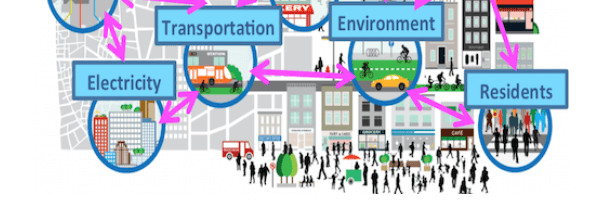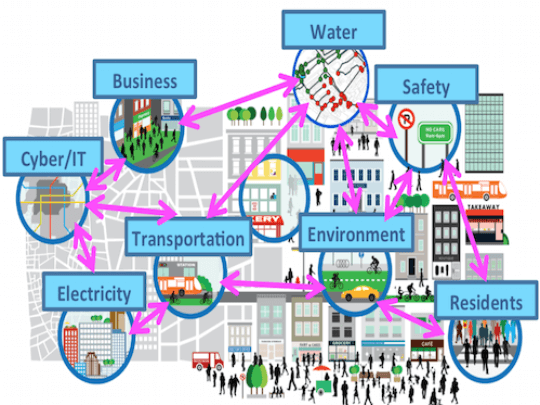User-centered Heterogeneous Data Fusion for Multi-networked City Mobility UHDNetCity
Jump to navigation
Jump to search
| User-centered Heterogeneous Data Fusion for Multi-networked City Mobility UHDNetCity | |
|---|---|

| |
 Tallahassee Smart City Project | |
| Team Organizations | Florida State University Internet2 StanTec |
| Team Leaders | Reza Arghandeh |
| Participating Municipalities | Tallahassee FL |
| Status | Development |
| Document | None |
Description
Both sentient and sensual, the smart city is based on the identification of millions of occurrences around the mobility from evaluating residents consumption of water and energy, to recording traffic on road network, to communication network congestion on hot spots, to measure air quality, and tracking public opinions on social networks. This project aims to characterize urban mobility in smart cities, which are interconnected and interdependent sociotechnical systems. Our objectives are:
- Create a data-fusion tool for integrating heterogeneous data from various urban infrastructure and social media.
- Enhance citizen participation in urban mobility characterization using a smart phone app such as DigiTally in Tallahassee.
- Define new indices to measure mobility as a multidimensional spatiotemporal entity in the city ecosystem.
Challenges
- Lack of observability on interdependency between variable urban networks and lack of high fidelity network models are main challenges.
- The other challenge is the organizational obstacle for enterprise data sharing within the City managements.
Solutions
- A heterogeneous data fusion algorithm will be used for integrating datasets for traffic (speed, flow, etc.), electricity demand, water consumption and cellular network traffic to create urban network transparency.
- Urban mobility will be characterized based on the travel time reliability and service availability measures.
Major Requirements
- Collect mobility data from different departments within the City of Tallahassee and other local/state agencies,
- Develop heterogeneous data fusion and analysis tool,
- Create database, user interface, and data sharing applications,
- Define and validate indices for multidimensional urban mobility considering community satisfaction level,
- Run a pilot project in the Florida State University campus,
- Implement the urban mobility monitoring and characterization in the City of Tallahassee utility management systems.
Performance Targets
| Key Performance Indicators (KPIs) | Measurement Methods |
|---|---|
|
|
Standards, Replicability, Scalability, and Sustainability
- Requires interoperable GPS, GIS and Crowdsourcing data interfaces.
- Requires compatibility with transportation network modeling software such as Florida’s Statewide Transportation Network Model (FSUTMS) actively used by the Florida Department of Transportation
- Adopt Open Field Message Bus (OpenFMB™) which is part of SGIP's EnergyIoT™ initiative.
- The proposed approach is topological based and data-driven. Firstly, it will be implemented on FSU campus, and then it will be scaled up to the City of Tallahassee. The team will work with other teams in Florida for state level implementations.
Cybersecurity and Privacy
TBD
Impacts
- Enhance city wide mobility management through quick congestion detection
- Create predictive congestion management for seamless mobility
- Avoid local business and residents financial loss due to more reliable utility services
- Reduce traffic congestion and outage time and improving life quality
Demonstration/Deployment
- Phase I Pilot/Demonstration:
- Characterize urban mobility in terms of transportation and electricity networks.
- Test application on pilot scale, tied into FSU management systems
- Phase II Deployment:
- Extend urban mobility to all urban networks.
- Real-time working application tied into city dispatch systems for downtown Tallahassee.
